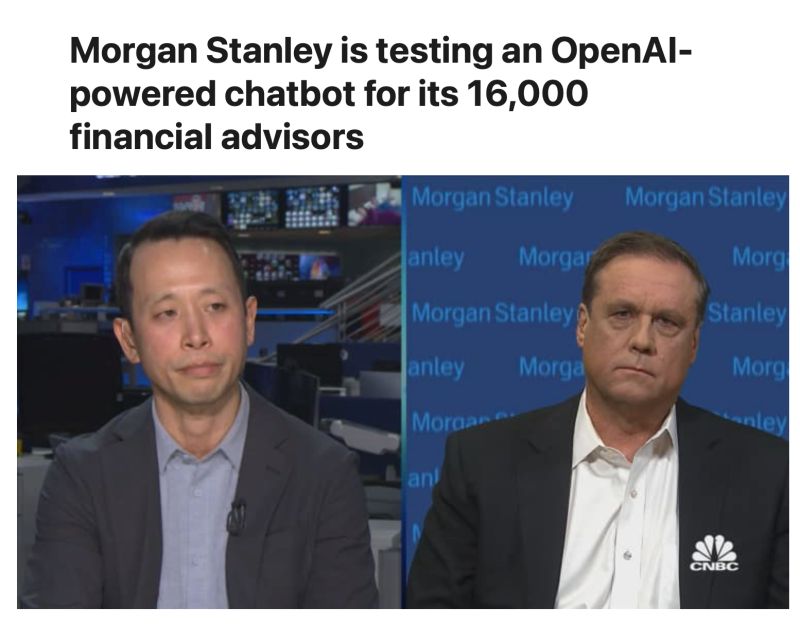Prediction: AI will be as common as instant messaging and video-conferencing in the workplace.
Companies will integrate AI capabilities in their operational stack to target multiple use cases ranging from driving operational efficiency, helping marketers write better copy, helping sellers with prompts and also, helping agents improve customer experience.
For example, Morgan Stanley is testing an AI-powered chatbot that can provide real-time insights and personalized recommendations to financial advisors.
The chatbot, powered by OpenAI, can analyze vast amounts of data and quickly provide insights on financial markets, products, and client needs.
What are your thoughts: Do you see AI becoming more integrated in the workplace in the near future?
#AI #futureofwork #generativeAI
More reading: https://buff.ly/3yFHUu0

